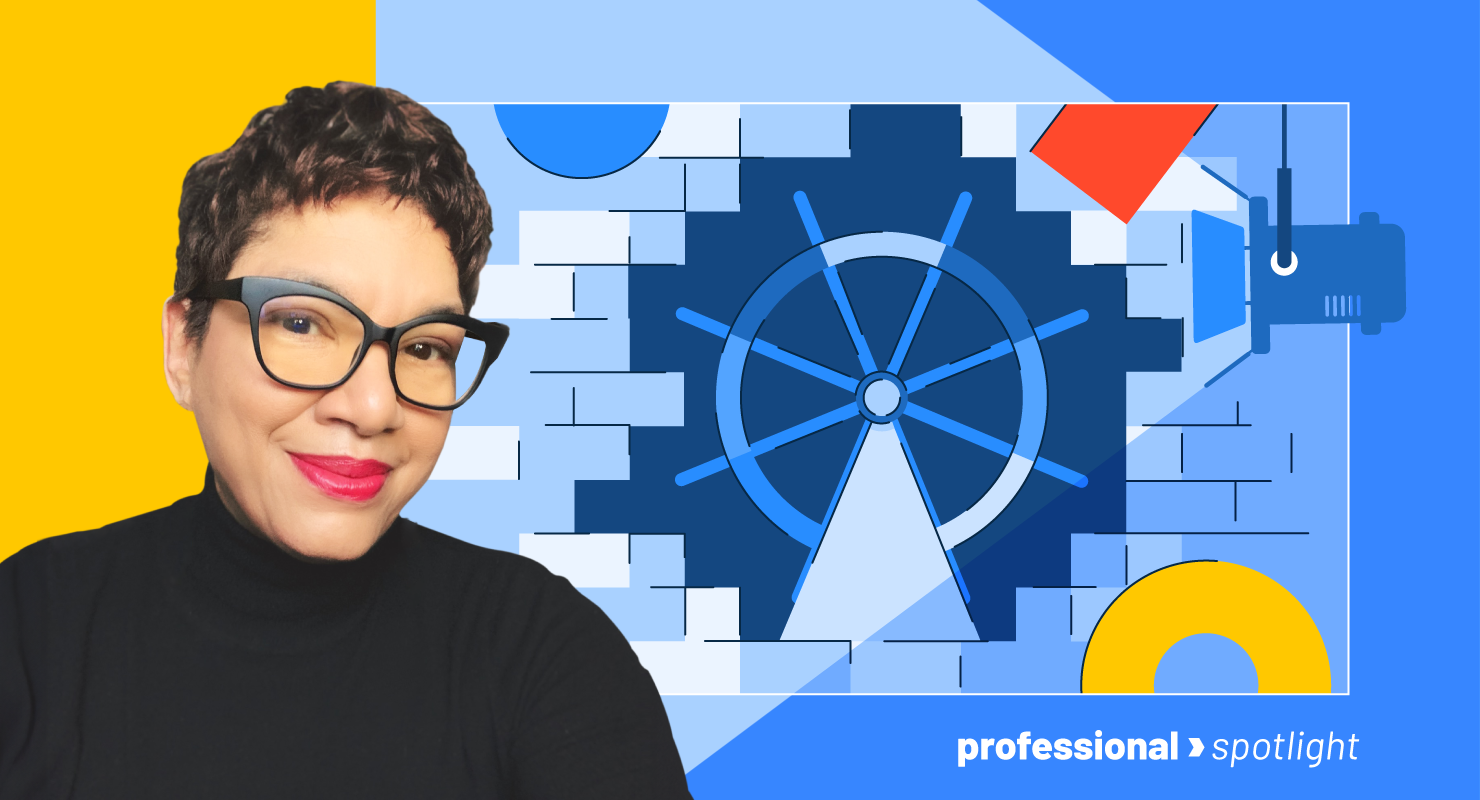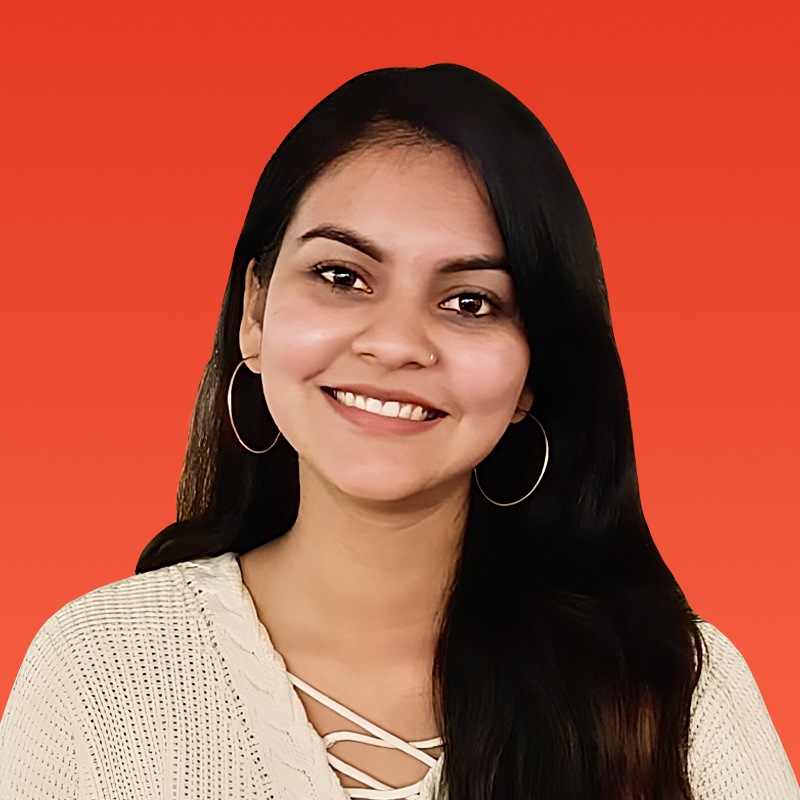May 15, 2024
 by Kamaljeet Kalsi / May 15, 2024
by Kamaljeet Kalsi / May 15, 2024

We’ve all heard that February is Black History Month, March is Women’s History, April is Autism and Neurodiversity Awareness Month, and so on. But if we forget the calendar and put this in a real-life perspective, every day is all of these days.
Being black, or neurodivergent, or queer, or anything else is a living, breathing reality for many people navigating through life, striving to build careers, and, dare I say, breaking the glass ceiling.
In celebration of this very spirit of resilience and optimism, this Professional Spotlight is on data veteran Deborah Womack. Recently awarded the Twenty in Data & Tech by Women in Data®, Deborah has traveled an unconventional 40-year journey as a black, neurodivergent woman who isn’t letting age or adversity hold her back.
And don’t worry, you don’t have to be black, a woman, or neurodivergent to be able to find inspiration in Deborah’s story. There’s something for everyone here.
So, grab your cuppa, pen, and paper (or your favorite notes app) for golden nuggets on career pivots, women in data, surviving pivots, and the power of believing.
This interview is part of G2’s Professional Spotlight series. For more content thought leadership content, deep analysis, and actionable insights, subscribe to G2 Tea, a newsletter with SaaS-y news and entertainment.
What's your favorite beverage? I have two: tea without milk, the best I had was in India, and champagne. I don't believe that you need to save champagne for a celebration.
What was your first job? I scooped ice cream at a local ice cream parlor in a new mall but was fired due to racial discrimination. It was shocking. In response, my mom helped me file a complaint against the Baskin Robbins Corporation, and I won. This was an important lesson mom taught me that shaped my career and showed me how to stand up for myself.
What's your favorite software in your current tech stack? I don’t have a favorite, but content data lakes is an emerging category that excites me.
What problems at work make you want to throw your laptop out the window?
Poor user experience and design waste so much time. I'm frustrated by the lack of accessibility in systems like video conferencing, HR portals, and other work-related systems. It’s shocking that work software is built without consulting organizations like the Royal National Institute of Blind People (RNIB) to ensure accessibility for blind and partially sighted people.
Kamaljeet Kalsi: Could you tell us a little about yourself and your professional journey?
Deborah Womack: I started with ADHD and a learning disability, figuring things out on my own. I knew I was creative, could draw, and saw the world differently. I was terribly curious, and good at solving problems and understanding big concepts. My career began as an illustrator. Later, as an art director and assistant producer, I was a part of BAFTA-nominated and Oscar-winning films.
I also founded my film production company but then shifted to marketing due to changes brought on by technology like Photoshop and computer animation. Instead of letting computers take over my skills, I decided to embrace technology and make it part of what I do. I pivoted my career, leaning into technology, and became well-versed in database marketing and coding. My problem-solving skills enabled me to work at the intersection of data, technology, and people, driving efficiency and effectiveness for companies.
I have held significant designations, such as Partner at EY and Director at Deloitte, where I led marketing transformation for their financial services. Earlier in my career, I was privileged to be the Director of Data Strategy and CRM at Ralph Lauren, Global Head of Relationship Marketing (CRM) at SABMiller, Senior Manager of CRM at Sony Europe, and more.
I sit on several boards in my volunteer and advisory roles, advocating for diversity and making changes from within leadership rooms. I serve as a second-term board trustee for the RNIB. I’m on the advisory board for GTA Black Women in Tech as Senior Advisor to the CEO and founder, and also function as a Senior Strategic Advisor to Meta for Black representation in marketing in the UK. I also hold a Non-Executive Director position at MediaLike AI.
What drives your career, advocacy, and thought leadership?
I've been seen as an angry black woman who is too loud and too aggressive. But I continue on my path because I'm still the Deborah who got fired from her first job at 17 for being black. I’m making sure that never happens to someone again. So, my purpose has driven me to deliberately work and put myself in leadership rooms where I can be a voice for what makes sense in our society. This approach has been my career's guiding principle.
Thought leadership is about taking action. People discuss change often, but real progress will happen from reaching out to those who can enact that change. It's about inclusivity, supporting each other, and ensuring we make opportunities accessible.
“That's what makes thought leadership impactful: getting our message to the people who can drive the change.”
Deborah Womack
Award Winner of Twenty in Data & Tech 2024
You’ve pivoted your career thrice. What has helped you survive these turning points?
I would say my problem-solving ability, curiosity, and constant drive to learn have been central to surviving career pivots. As someone with ADHD, I've an inherent knack for understanding big concepts, patterns, and rhythms which has helped me navigate life's unexpected turns.
When technology changed the game, my resilience empowered me to embrace it instead of being left behind. I didn't take the traditional path, like pausing my career for an MBA; I believed in the value of learning by doing. This approach has served me well, especially as I recognized my worth in what I excel at: solving problems, being artistic, and bridging the gap between the world of tech and art.
Flexibility and openness to change have led me to unexpected and enriching experiences. Transitioning from film to tech opened up new opportunities for me. It's all because I never knew exactly what I wanted to do. My diverse experience continues to guide my career.
“Now, at 60, I'm still learning and growing, and ready to start writing my next chapter — quite literally, with the two books I plan to write.”
You transitioned from the movie industry to technology and data. Can you tell us which aspect of your career has brought you the most fulfillment?
My career shifts, from art to marketing to technology, have been incredibly fulfilling. This journey, though hard at times, and the recognition have been incredibly rewarding, with significant milestones along the way.
The time I successfully won my first job in marketing at Ralph Lauren after being ill and unemployed for 18 months was incredible. I've always relied on myself, my brain, and what I can present. That was true for the first job where I wasn't sure how I would get to the interview, but I walked in and presented my work and got into Ralph Lauren. It was true again for the partnership I achieved at EY after 15 interviews.
Someone may think I was handed the job because I'm black, or I'm a female, or I'm disabled. But that’s not the reason why I landed those roles. It has been about solving the next puzzle and embracing change. My achievements, especially when I had to be resilient, have been fulfilling experiences for my personal and professional growth.
“My journey taught me that technical proficiency comes in many forms, and it's the diverse perspectives that drive meaningful innovation.”
What or who inspired you to specialize in the field of data?
One of my early inspirations was a colleague at Sony who showed me the power of possibilities with data. His passion for the craft and ability to solve complex problems using data was contagious.
I remember him when I think about a good data analyst or data scientist. He was one of those people who could sit in front of mountains of data and work his magic. It was really inspiring.
Today, when people just throw around data buzzwords and statements, like, “We'll just put data together” and “We need a data strategy” — I go right back to thinking about how we used to work around with a database and go, “Oh, look, you can see a pattern happening.” To my ADHD brain, that was interesting. That was creativity. The lesson I learned about hard coding before I even got to SPSS was amazing. These interactions opened my eyes to the creative and transformative power of data.
Data can truly either tumble down lots of things or make a difference to business and people's lives when you get talented data analysts, architects, and data scientists.
How does your recognition as one of the top 20 women in data and tech fuel advocacy for women in the data industry?
Being awarded as one of the 20 in Twenty in Data & Tech by Women in Data® has been one of the proudest moments in my career so far. It’s important because I no longer code but have made it this far by doing that. I have always loved and advocated for data whenever possible. It also underscores the importance of diverse voices in shaping the future of technology.
For my advocacy towards equality in the data space, the recognition does three things:
That's truly inspiring. Did the fact that others nominated you for the award surprise you?
It did surprise me! Having a network of people who support and lift each other up is invaluable. I'm nothing without the tribe of amazing individuals around me who have aided my growth and shared opportunities. We help each other navigate challenges and celebrate successes.
In our earlier chat, you had mentioned earlier that you are often the only black woman in boardrooms. How do you ensure you're heard?
When I enter a room, my presence is usually quite noticeable because of my color, appearance, and big personality. I use two techniques. One is that I'm rarely the first person to speak, and don't attend meetings without knowing the agenda because it's important to be prepared and add value. If I don't think I can add value to a meeting, I don't go. Simply because I won’t know the subject matter, and if I can’t answer when asked, I’ll waste my whole day regretting it. If I’m in doubt, I ask someone for more context.
Second, I observe, wait, and formulate my ideas. I watch the people dynamics, listen intently, notice the spoken and unspoken cues, and wait for the right moment to contribute.
“When there’s silence in the room, my work of being heard begins. I usually begin with something like, “I have a point of view on that,” or “Here's what I wanted to say.”
I always present my viewpoint with context, ensuring I'm actively contributing to the conversation.
“Having context to back my perspective prepares me with material for situations where I might feel like I’m being unfairly silenced or undermined — which is rare but not non-existent.”
Being prepared and on time builds confidence and ensures you're ready for whatever comes your way.
As we look towards the future of data and martech, what role do you see women playing?
Women have a huge role to play in the era of machine-to-machine interaction because of their unique points of view, experiences, and the language they use compared to their male counterparts.
This is especially true for women from other underrepresented groups and communities, whether disabled, LGBTQ+, or brown and black. It will be critical in developing technologies that cater to a wider audience and drive true innovation across industries.
“Commercial companies will compete for evermore growth and to align with societal shifts, but they won’t be able to keep achieving it out of marketing to the same affluent 10%.”
Businesses will need to evolve their traditional go-to-market mindset and reach underrepresented groups. The only way to do that is by hiring diverse talent, something I’m already seeing in the hiring patterns with my clients and everywhere I am.
Being a neurodivergent person, how do you approach work life?
Having ADHD has certainly given me heightened observational skills. What might seem like a hindrance to some has, in fact, been a strength for me. It has allowed me to perceive more than what's merely said out loud. I've often thought my next career should be at MI6, like James Bond.
I think of my ADHD as an aspect of my life that has both challenged and benefited me in profound ways. For instance, I don't sleep a lot, which has been tough. Learning to read was hard. But I’ve also reached where I am because I have this brain.
I feel a connection with you and I’m sure people reading this resonate with it too. Any advice you would’ve wanted to give younger Deborah about navigating life and building a career?
I always say that I never give advice. I don't think advice is a good thing. Because you may end up following too narrowly which may not align with your authentic path. So take this with a pinch of salt.
“Looking back at my younger self, what I would say to 17-year-old Deborah, who was fired from her first job, is don’t worry about it. You need to realize that you're different. In the future, being different might just be the very thing that makes you successful.”
Deborah Womack
Award Winner of Twenty in Data & Tech 2024
It's okay to be frightened, to be anxious, to be angry. It's okay to be all those things. But really, all of those things, when you learn to harness it, will give you power and success. I would say that to the 17-year-old Deborah and every other young woman who is 17, 20, 30, 40, or 50. It's all okay because it's all about being human. When you accept the full spectrum of emotions, from fear to joy, and turn anger into action and anxiety into resilience, you will become the most amazing person.
Keep up with Deborah Womack on LinkedIn.
If you enjoyed this insightful conversation, subscribe to the G2 Tea newsletter for the latest tech and marketing thought leadership.
Kamaljeet Kalsi is Sr. Editorial Content Specialist at G2. She brings 9 years of content creation, publishing, and marketing expertise to G2’s TechSignals and Industry Insights columns. She loves a good conversation around digital marketing, leadership, strategy, analytics, humanity, and animals. As an avid tea drinker, she believes ‘Chai-tea-latte’ is not an actual beverage and advocates for the same. When she is not busy creating content, you will find her contemplating life and listening to John Mayer.
Change is hard. Just as the Grinch initially loathed Christmas, transformation can feel...
 by Kamaljeet Kalsi
by Kamaljeet Kalsi
Let's be honest. Not every business partnership clicks instantly. But when they do, they're a...
 by Tanushree Verma
by Tanushree Verma
Data-driven storytelling is at the heart of winning customer love. But like Cupid’s arrow, it...
 by Kamaljeet Kalsi
by Kamaljeet Kalsi
Change is hard. Just as the Grinch initially loathed Christmas, transformation can feel...
 by Kamaljeet Kalsi
by Kamaljeet Kalsi
Let's be honest. Not every business partnership clicks instantly. But when they do, they're a...
 by Tanushree Verma
by Tanushree Verma


